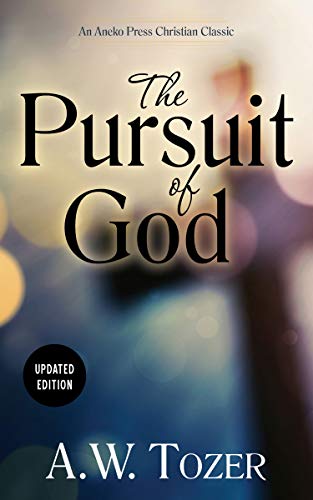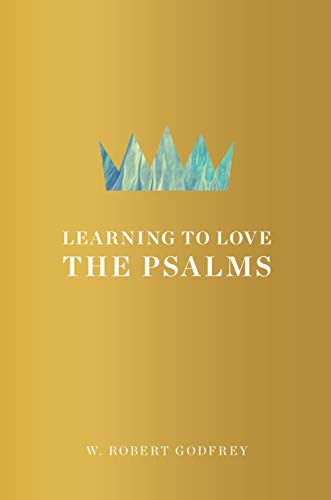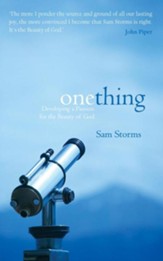Quotes about God-Delight_in
How sweet all at once it was for me to be rid of those fruitless joys which I had once feared to lose and was now glad to reject! You drove them from me, You who are the true, the sovereign joy. You drove them from me and took their place, You who are sweeter than all pleasure, though not to flesh and blood, You who outshine all light yet are hidden deeper than any secret in our hearts, You who surpass all honor though not in the eyes of men who see all honor in themselves. At last my mind was free from the gnawing anxieties of ambition and gain, from wallowing in filth and scratching the itching sore of lust. I began to talk to you freely, O Lord my God, my Light, my Wealth, and my Salvation.
Benefits of delighting ourselves in God:
1. Delight in God will prove that you know Him and love Him and that you are prepared for His kingdom, for all who truly delight in Him shall enjoy Him.
2. Prosperity, which is merely the small addition of earthly things, will not easily corrupt you or transport you.
3. Adversity, that is, the withholding of earthly delights, will not much grieve you or easily deject you.
4. You will receive more profit from a sermon or good book or conversation you delight in, than other people, who don’t delight in them, will receive from many such opportunities.
5. All your service will be sweet to yourself and acceptable to God; if you delight in Him, He certainly delights in you (Psalm 149:4; 147:11; 1 Chronicles 29:17).
6. He will have a continual feast with you, to sweeten all the crosses of your life and provide you with joy greater than your sorrow in your saddest condition.
7. When you delight in God, your created pleasures will be sanctified to you and warranted in their proper place, which in other people are idolatrous or corrupt.
Of late God has been pleased to keep my soul hungry almost continually, so that I have been filled with a kind of pleasing pain. When I really enjoy God, I feel my desires of Him the more insatiable and my thirstings after holiness more unquenchable.
When we enjoy God, we enjoy Him in His eternity without any flux… Time is fluid, but eternity is stable; and after many ages, the joys will be as savory and satisfying as if they had been but that moment first tasted by our hungry appetites. When the glory of the Lord shall rise upon you, it shall be so far from ever setting, that after millions of years are expired, as numerous as the sands on the seashore, the sun, in the light of whose countenance you shall live, shall be as bright as at the first appearance; He will be so far from ceasing to flow, that He will flow as strong, as full, as at the first communication of Himself in glory to the creature. God is always vigorous and flourishing; a pure act of life, sparkling new and fresh rays of life and light to the creature, flourishing with a perpetual spring, and contenting the most capacious desire; forming your interest, pleasure, and satisfaction; with an infinite variety, without any change or succession; He will have variety to increase delights, and eternity to perpetuate them; this will be the fruit of the enjoyment of an infinite and eternal God.
When we enjoy God, we enjoy Him in His eternity without any flux… After many ages, the joys will be as savory and satisfying as if they had been but that moment first tasted by our hungry appetites. When the glory of the Lord shall rise upon you, it shall be so far from ever setting, that after millions of years are expired, as numerous as the sands on the seashore, the sun, in the light of whose countenance you shall live, shall be as bright as at the first appearance; He will be so far from ceasing to flow, that He will flow as strong, as full, as at the first communication of Himself in glory to the creature. God is always vigorous and flourishing; a pure act of life, sparkling new and fresh rays of life and light to the creature, flourishing with a perpetual spring, and contenting the most capacious desire; forming your interest, pleasure, and satisfaction; with an infinite variety, without any change or succession; He will have variety to increase delights, and eternity to perpetuate them; this will be the fruit of the enjoyment of an infinite and eternal God.
God glorifies Himself toward the creature also in two ways: 1. By appearing to…their understanding. 2. In communicating Himself to their hearts, and in their rejoicing and delighting in and enjoying the manifestations which He makes of Himself… God is glorified not only by His glory being seen, but by its being rejoiced in. When those that see it delight in it, God is more glorified than if they only see it. His glory is then received by the whole soul, both by the understanding and by the heart.
The enjoyment of God is the only happiness with which our souls can be satisfied. To go to heaven, fully to enjoy God, is infinitely better than the most pleasant accommodations here. Fathers and mothers, husbands, wives, or children, or the company of earthly friends, are but shadows, but God is the substance. These are but scattered beams, but God is the sun. These are but streams. But God is the ocean.
The Christian Pilgrim, Works of Jonathan Edwards, by permission of Banner of Truth, Carlisle, PA. 1974, 2:244.
There is very great delight the Christian enjoys in the sight he has of the glory and excellency of God. How many arts and contrivances have men to delight the eye of the body. Men take delight in the beholding of great cities, splendid buildings and stately palaces. And what delight is often taken in the beholding of a beautiful face. May we not well conclude that great delights may also be taken in pleasing the eye of the mind in seeing the most beautiful, the most glorious, the most wonderful Being in the world.
The Pleasantness of Religion in The Works of Jonathan Edwards: Sermons and Discourses, 1723-1729.
Spiritual delight in God arises chiefly from his beauty and perfection, not from the blessings he gives us.
God is God; you are but one of His creatures. Your only joy is to be found in obeying Him, your true fulfillment is to be found in worshipping Him, your only wisdom is to be found in trusting and knowing Him.
If we don’t take the time to enjoy God, we simply will not enjoy Him.
The Gift of Eternal Life by Ajith Fernando taken from The Supremacy of Christ by Ajith Fernando, copyright 1995, Crossway Books, a division of Good News Publishers, Wheaton Illinois 60187, www.crosswaybooks.org, p. 178.
[Jonathan Edwards wrote of Sarah], “They say there is a young lady in (New Haven) who is loved of that Great Being, who made and rules the world, and that there are certain seasons in which this Great Being, in some way or other invisible, comes to her and fills her mind with exceeding sweet delight; and she hardly cares for anything, except to meditate on him… she has a strange sweetness in her mind, and singular purity in their affection… you could not persuade her to do anything wrong or sinful… She is of a wonderful sweetness, calmness and universal benevolence of mind…. She will sometimes go about from place to place, singing sweetly; and seems to be always full of joy and pleasure; and no one knows for what. She loves to be alone, walking in the fields and groves, and seems to have some one invisible always conversing with her.”
[Esther Edwards Burr at the death of her husband Aaron said], “Had not God supported me by these two considerations: first, by showing the right he has to his own creatures, to dispose of them when and in what manner he pleases; and secondly, by enabling me to follow him beyond the grave, into the eternal world, and there to view him in unspeakable glory and happiness, freed from all sin and sorrow; I should, long before this, have been sunk among the dead, and been covered with the clods of the valley- God has side ends in all that he doth. This thing did not come upon me by chance; and I rejoice that I am in the hands of such a God.”
If there lurks in most modern minds the notion that to desire our own good and earnestly hope for the enjoyment of it is a bad thing, I submit that this notion has crept in from Kant and the Stoics and is no part of the Christian faith. Indeed, if we consider the unblushing promises of reward and the staggering nature of the rewards promised in the Gospels, it would seem that Our Lord finds our desires not too strong, but too weak. We are half-hearted creatures, fooling around with drink and sex and ambition when infinite joy is offered us, like an ignorant child who wants to go on making mud pies in the slum because he cannot imagine what is meant by the offer of a holiday at the sea. We are far too easily pleased.
The Scotch catechism says that man’s chief end is ‘to glorify God and enjoy Him forever.’ But we shall then know that these are the same thing. Fully to enjoy is to glorify. In commanding us to glorify Him, God is inviting us to enjoy Him.
It has pleased God lately to teach me more than ever that Himself is the fountain of happiness; that likeness to Him, friendship for Him, and communion with Him, form the basis of all true enjoyment. The very disposition which, blessed be my dear Redeemer! He has given me, to be anything, do anything, or endure anything, so that His name might be glorified – I say, the disposition itself is heaven begun below.
We praise what we enjoy because the delight is incomplete until it is expressed in praise. If we were not allowed to speak of what we value, and celebrate what we love, and praise what we admire, our joy would not be full. So if God loves us enough to make our joy full, He must not only give us Himself; He must also win from us the praise of our hearts – not because He needs to store up some weakness in Himself or compensate for some deficiency, but because He loves us and seeks the fullness of our joy that can be found only in knowing and praising Him, the most magnificent of all Beings.
Desiring God, Bethlehem Baptist Church, 1996, p. 49, used by permission, www.desiringGOD.org. Get this book!
Delighting in worldly things – effectually prevents our delighting in God. Therefore it is often the case, that the Lord strips us of these things, or incapacitates us to enjoy them – in order to bring us back to delight in Himself.
Surely if our hearts were right – we would delight in [God] on account of His glorious perfections; His unalterable love; the perfect atonement made for our sins; the promises made for our comfort and encouragement; the gift of the Holy Spirit; the communion we are urged to hold with Himself; and the glorious paradise of blessedness set before us – where we shall forever view the unfolding of His glories, enjoy the riches of His grace, and drink of the river of His pleasures!
If there is anything that thrills you, excites you, captivates you, stuns you more than God, you are an idolater.
Sermon, The Faithful Witnesses of Christ – Part 2, Revelation 11:1-19, January 3, 2015.
This is how I see all the commands to evangelize. I don’t view them as something I just need to turn on in certain situations. I see them in the context of a robust relationship with God. It’s getting to a point where God is so special and adored in our lives that speaking to others about Him, either fellowshiping with believers or evangelizing unbelievers, is simply from the overflow of our hearts.
Sermon, The Faithful Witnesses of Christ – Part 2, Revelation 11:1-19, January 3, 2015.
There is a vast difference between such an affection and that selfish and unhallowed friendship to God which terminates on our own happiness as its supreme motive and end. If a man in his supposed love to God has no ultimate regard except to his own happiness, if he delights in God not for what He is but for what He is to him, in such a sentiment there is no moral virtue. There is indeed great love of self but no true love of God. But where the enmity of the carnal mind is slain, the soul is reconciled to the divine character as it is. God Himself in the fullness of His manifested glory becomes the object of devout and delighted contemplation. In his more favored hours, the views of a good man are in a great measure diverted from himself. As his thoughts glance toward the varied excellence of the deity, he scarcely stops to inquire whether the being whose character fills his mind and in comparison of whose dignity and beauty all things are atoms and vanity will extend his mercy to him. His soul cleaves to God and in the warmth and fervor of devout affection, he can often say, “Whom have I in heaven but Thee, and there is none on the earth that I desire beside Thee, as the hart pants after the waterbrooks, so pants my soul after Thee, O God.”
Oh, there is, in contemplating Christ, a balm for every wound! In musing on the Father, there is a quietus for every grief and in the influence of the Holy Spirit there is a balsam for every sore. Would you lose your sorrows? Would you drown your cares? Then go plunge yourself in the Godhead’s deepest sea; be lost in His immensity; and you shall come forth as from a couch of rest, refreshed and invigorated. I know nothing which can so comfort the soul, so calm the swelling billows of grief and sorrow; so speak peace to the winds of trial, as a devout musing upon the subject of the Godhead.
The only way to liberate the heart from servitude to the passing pleasures of sin is by cultivating a passion for the joy and delight of beholding the beauty of God in the face of Jesus. What breaks the power of sin is faith in the promise that the pleasures of sin are temporary and toxic but at God’s right hand are pleasures evermore (see Psalm 16:11).
Copied from: Pleasures Evermore: The Life-Changing Power of Knowing God by Sam Storms, © 2000, p. 31. Used by permission of NavPress – www.navpress.org. All rights reserved. Get this book!




















